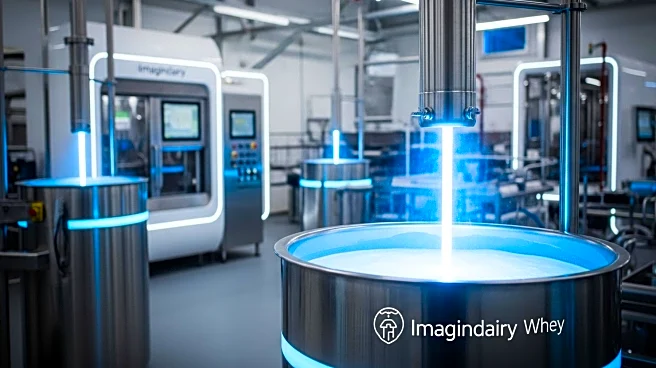What is the story about?
What's Happening?
Israeli food company Strauss Group is set to introduce a new line of 'cow-free' products, including drinks and cream cheese, utilizing whey protein produced by Imagindairy. This protein is derived from microbes rather than cows, specifically using a genetically engineered strain of Aspergillus Oryzae fungus. The products, certified kosher and lactose-free, will be available in Israeli retailers under the Yotvata and Symphony brands. Imagindairy, founded in 2020, has developed a customer pipeline ranging from small companies to multinationals aiming to meet ESG goals by reducing the carbon footprint associated with traditional dairy production. The company has secured a 'no questions letter' from the FDA for its animal-free beta-lactoglobulin, joining other startups in the field.
Why It's Important?
The launch of these 'cow-free' products represents a significant shift in the dairy industry towards more sustainable and ethical production methods. By using microbial fermentation to produce whey protein, Strauss Group and Imagindairy are addressing environmental concerns associated with traditional dairy farming, such as high carbon emissions and resource use. This innovation could lead to broader acceptance and integration of animal-free dairy products in the market, potentially reducing the reliance on livestock farming and its environmental impact. The move also aligns with global trends towards plant-based and alternative proteins, offering consumers more choices and potentially influencing industry standards.
What's Next?
Strauss Group plans to expand its 'cow-free' product offerings, with additional items expected to follow the initial launch. As the market for animal-free dairy grows, companies like Imagindairy will likely continue to innovate and optimize production processes, potentially leading to more competitive pricing and wider consumer acceptance. Regulatory pathways and consumer education will be crucial in facilitating this transition, as stakeholders navigate the complexities of introducing novel food products. The success of these initiatives could encourage other food companies to explore similar sustainable practices.















